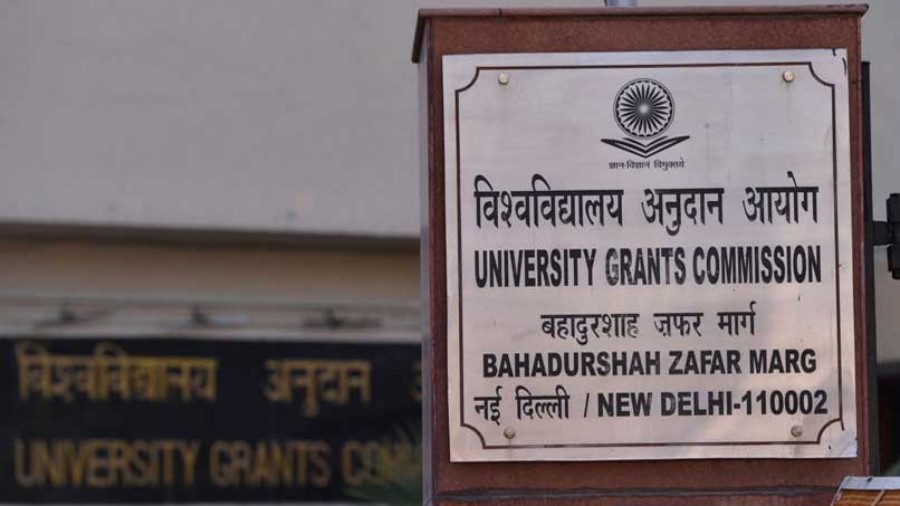The University Grants Commission has advised the central universities to teach courses based on student “demand” and “numbers”, raising the spectre of a gradual elimination of some language and social science programmes at many institutions.
“Going by this directive, courses in humanities and the social sciences will gradually be closed down at public universities. Only professional courses will be taught against high fees,” Chandra Mohan Negi, a Delhi University academic council member, said.
The commission, a central government body that disburses funds to universities, wrote to all the central universities last month requesting “rationalisation” of their existing courses keeping in mind the demand from students.
The letter, which cites a nudge from the education ministry, comes at a time public-funded institutions have on their own begun winding up many traditional courses, mainly in the arts and social sciences.
Imteyaz Ahmed, an Urdu teacher with DU, said five colleges affiliated to the university — Khalsa College, Lady Shri Ram College, Miranda House College, Hindu College and Ambedkar College — had closed their Urdu departments in recent years.
Since public-funded universities often represent the sole hope of quality higher education for students from the deprived segments, any closure of their programmes would hurt the poor the most.
“The undersigned is directed to inform the MoE (Ministry of Education) vide its letter No 41-4/2020-CU.IV dated 30.11.2021 has conveyed their observation stating therein that there are some Departments which were started by Central Universities without any assessment of the number of students interested in such courses,” said the letter from V. Talreja, undersecretary, UGC.
“Therefore, it is requested you may conduct the courses based on the demand of the students and the number of students attending a particular course and do a rationalisation of all departments within the sanctioned no. of students and teaching staff aligned with the no. (of) students enrolled in such courses.”
Negi said the directive violated a fundamental principle of the National Education Policy, which seeks to promote inter-disciplinary research and studies.
“The NEP wants universities and colleges to promote inter-disciplinary studies.
The directive to offer courses that are (in high) demand will derail this objective,” Negi said.
He said student demand was high mostly for the professional courses, which offer better job prospects.
“For the humanities and social sciences, students will enrol only in online courses (if the UGC advisory is implemented) where there is no quality assurance. In this process, the poor students will be deprived of quality higher education,” he said.
Ahmed said that in the run-up to closing their Urdu departments, some the five colleges would “advertise all their courses in their admission prospectus but not Urdu”.
“If the students did not know, they could not apply. It was deliberate neglect,” he said.
The National Commission for Minorities has issued notices to these colleges for closing their Urdu departments.
Negi said the Bengali and Tamil departments in a few other colleges too had closed down. He said he had raised the issue at the last academic council meeting.
“The government is pushing the universities to offer market-driven courses to reduce its financial burden. A subject’s academic significance cannot be evaluated through financial benchmarks,” Negi said.
An email sent to UGC secretary Rajnish seeking the reason for the advisory has remained unanswered.











